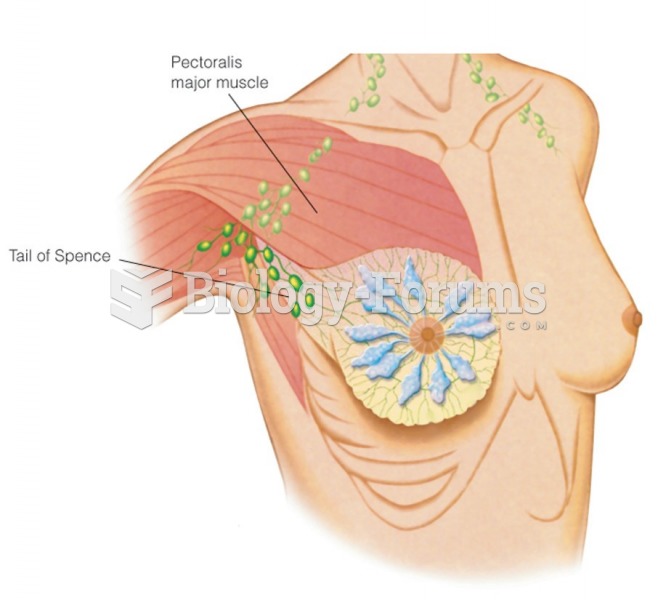|
|
|
Approximately 500,000 babies are born each year in the United States to teenage mothers.
Though the United States has largely rejected the metric system, it is used for currency, as in 100 pennies = 1 dollar. Previously, the British currency system was used, with measurements such as 12 pence to the shilling, and 20 shillings to the pound.
Acute bronchitis is an inflammation of the breathing tubes (bronchi), which causes increased mucus production and other changes. It is usually caused by bacteria or viruses, can be serious in people who have pulmonary or cardiac diseases, and can lead to pneumonia.
The Romans did not use numerals to indicate fractions but instead used words to indicate parts of a whole.
Symptoms of kidney problems include a loss of appetite, back pain (which may be sudden and intense), chills, abdominal pain, fluid retention, nausea, the urge to urinate, vomiting, and fever.
 The meninges. This figure illustrates the location and structure of each layer of the meninges and t
The meninges. This figure illustrates the location and structure of each layer of the meninges and t
 The relationship between number of acres a Kipsigis man owns and the number of offspring he has duri
The relationship between number of acres a Kipsigis man owns and the number of offspring he has duri





